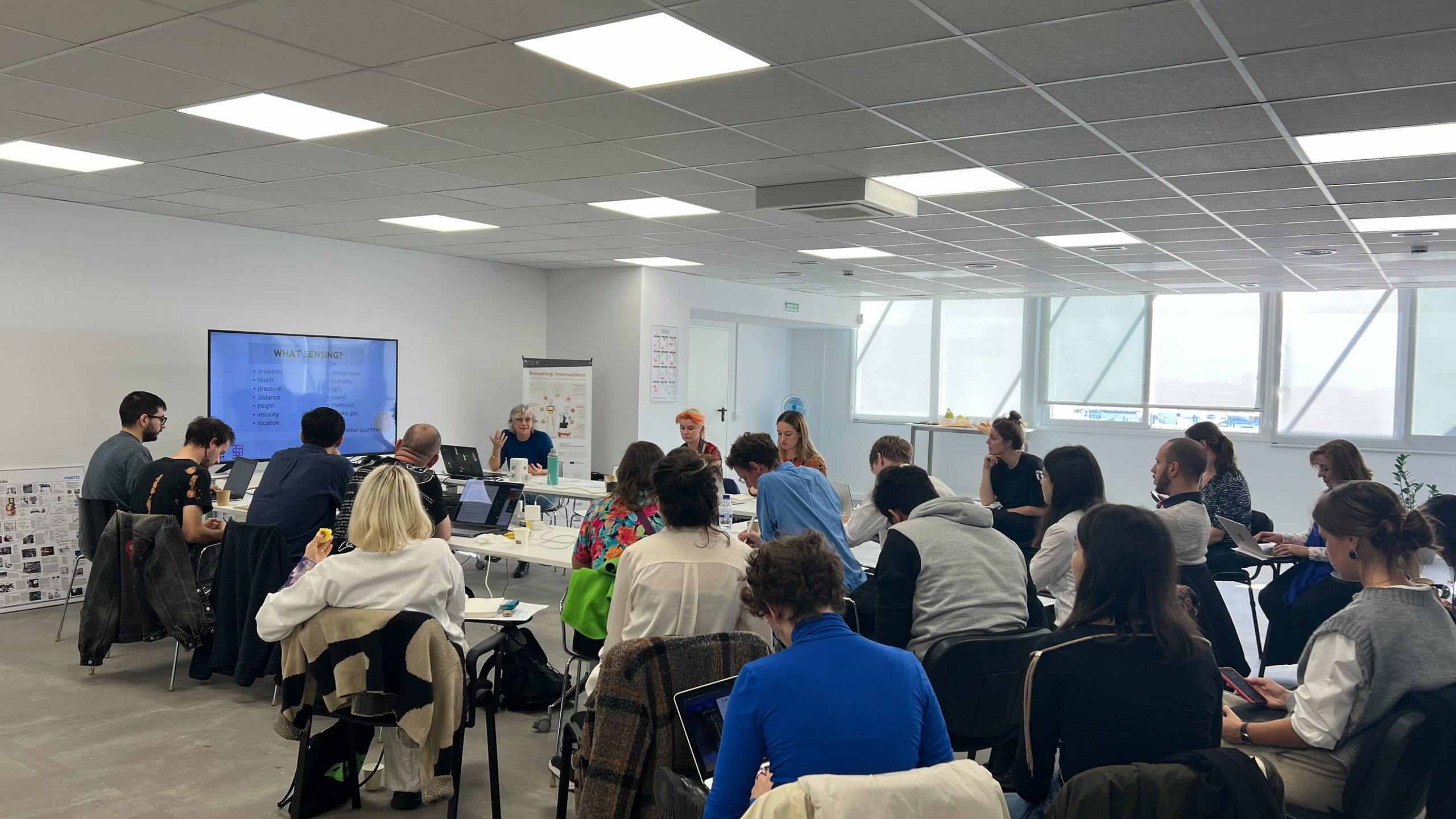
The MUSAE project has developed and implemented a training program during the MUSAE Art-Tech Residencies tailored to the specific domain of Food as Medicine and technologies, such as AI, Robotics and Wearables. The training program designed to help SMEs and artists to gain insights into technology, ethics, food domain, and work management tools. The training was provided in both online webinars, as well as presentations which you will find in this section.
Training on the DFA method and Art-tech collaboration
Art-tech collaboration. History and best practices
Christophe de Jaeger
Introduction to the DFA method
MUSAE
Training on the Food as Medicine
Ethical considerations in designing technologies for the agri-food sector.
Prof. David Rose
Database of Technology case studies, Trends and Art projects related to Food as Medicine topic
This database was created by the MUSAE consortium in the period of 2022-2023 to define thematic tracks for MUSAE residencies and as a support tool for artists.
Access Airtable database here
Training on Technologies
Introduction to the ethics of digital technology.
Prof. Petia Radeva
Robotics: Social Interaction
University of Manchester
Download here
Wearable sensors
Maria Bulgheroni, Laura Giani
Download here
Usability beyond today
Politecnico di Milano
Download here
Human – Machine Interaction and Workplan.
Francesco Semeraro & Maria Bulgheroni
Sustainability and complexity
Antonio Fleres, PhD, IULM University, Milan
Download here
The Ethics of Generative AI
Jordi Vitrià, Universitat de Barcelona
Download here
Trustworthy AI Framework
Responsible AI Music (RAIM) is a collaborative initiative bringing together musicians, AI experts, ethicists, and legal experts to define, expand, and monitor requirements for generative music AI. Our goal is to work towards a framework providing guidance on the responsible development and use of generative models and system for music. RAIM takes a holistic approach, harmonising previous work that has tackled specific aspects of generative systems (e.g., transparency, evaluation, data), within the Ethics Guidelines for Trustworthy AI produced by the European Commission – a framework for designing responsible AI systems across 7 macro requirements. Focusing on generative music AI, we illustrate how these requirements can be contextualised for the field, addressing trustworthiness across multiple dimensions and integrating insights from the existing literature.
Training on Intellectual Property and Work Management Tools
Iteration Management and Data Management Plan.
Maria Bulgheroni, Laura Giani and Laura Novelli
Human – Machine Interaction and Workplan.
Francesco Semeraro & Maria Bulgheroni
Data Management Plan.
Prof. Petia Radeva
Intellectual Property Management.
Maria Bulgheroni
